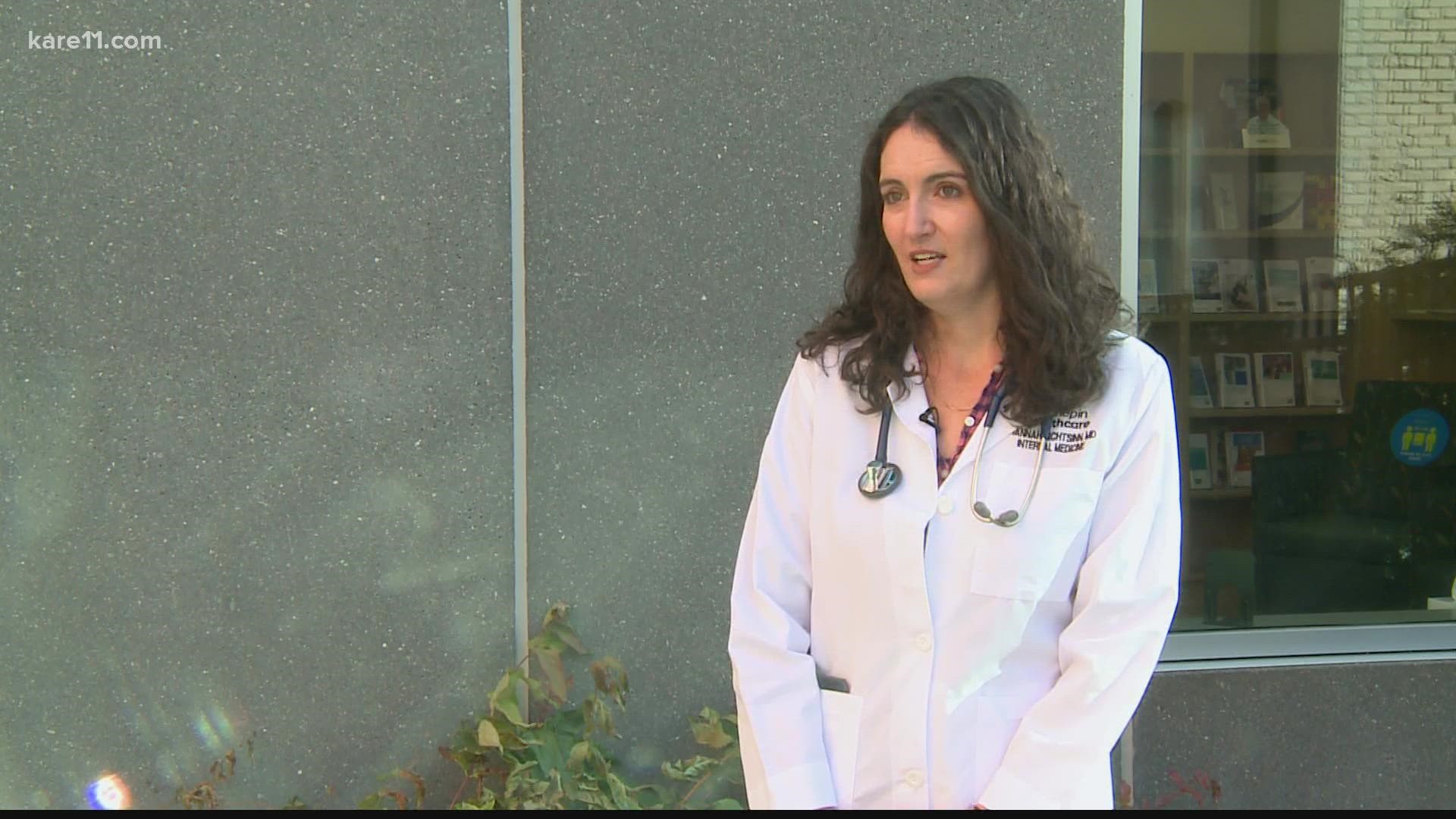MINNEAPOLIS — There are still a lot of questions about this new variant and just how concerned we should be.
We set out to find the most commonly searched questions on the internet and tried to answer as many of those questions as we could.
KARE 11: Why do they call it the omicron variant?
Dr. Hannah Lichtsinn, internal medicine, HCMC: As we’ve been going through new variants, we’ve been naming them based on the Greek alphabet. The next letter in the Greek alphabet would have been Nu, but because that has another word as in “new,” as in N-E-W, they skipped over it. And they skipped over Xi also because that also is a common name, so they went with omicron.
KARE 11: We’re that far along? That would make this the 13th variant. Why don’t we hear as much about the other variants?
Dr. Lichtsinn: We’re seeing a lot of variants constantly. The difference is recognizing which one's significant, which variants are different enough that we really need to pay attention to them. The reason we’re hearing more about this one is because there is concern that it will change the way we have to respond to COVID.
KARE 11: Where did it come from?
Dr. Lichtsinn : We have no idea where the first person of this omicron variant was, but what we do know is the sort of high-tech surveillance system that they have in South Africa was the first place they noticed it and recognized it.
KARE 11: What are the symptoms like?
Dr. Lichtsinn: We have no reason to think that the symptoms are any different compared to the strains we have already been dealing with.
KARE 11: Is this strain more mild or severe than the other strains?
Dr. Lichtsinn : It’s really too soon to tell. We’ll need more time to study this to see if it will affect people differently.
KARE 11: Are the COVID vaccines we have right now effective against this new strain?
Dr. Lichtsinn: That will take more time to answer. What is most likely is they will be effective to a point. What we don’t know yet is if they will be less effective than they were on the other variants we’ve seen. We’ll be able to adapt pretty quickly and get new vaccines out there if the ones we don’t have don’t work well.
KARE 11: Is it here in the United States?
Dr. Lichtsinn: I haven’t heard any reports of it being detected here. It could very well be here, and now that we know to look for it, that we’ll find it. They detected cases in Canada, and all things being equal, it’s quite likely it’s in the United States too.
KARE 11: Is there anything else people should know about this new variant?
Dr. Lichtsinn: We don’t know enough yet to know if omicron is going to affect us any differently than the delta variant has. This new variant shouldn’t necessarily change anybody’s approach related to staying safe from COVID-19. The most important things are still getting the vaccine, getting the booster if you’re eligible and wearing a mask any time you’re in a crowded indoor space.

